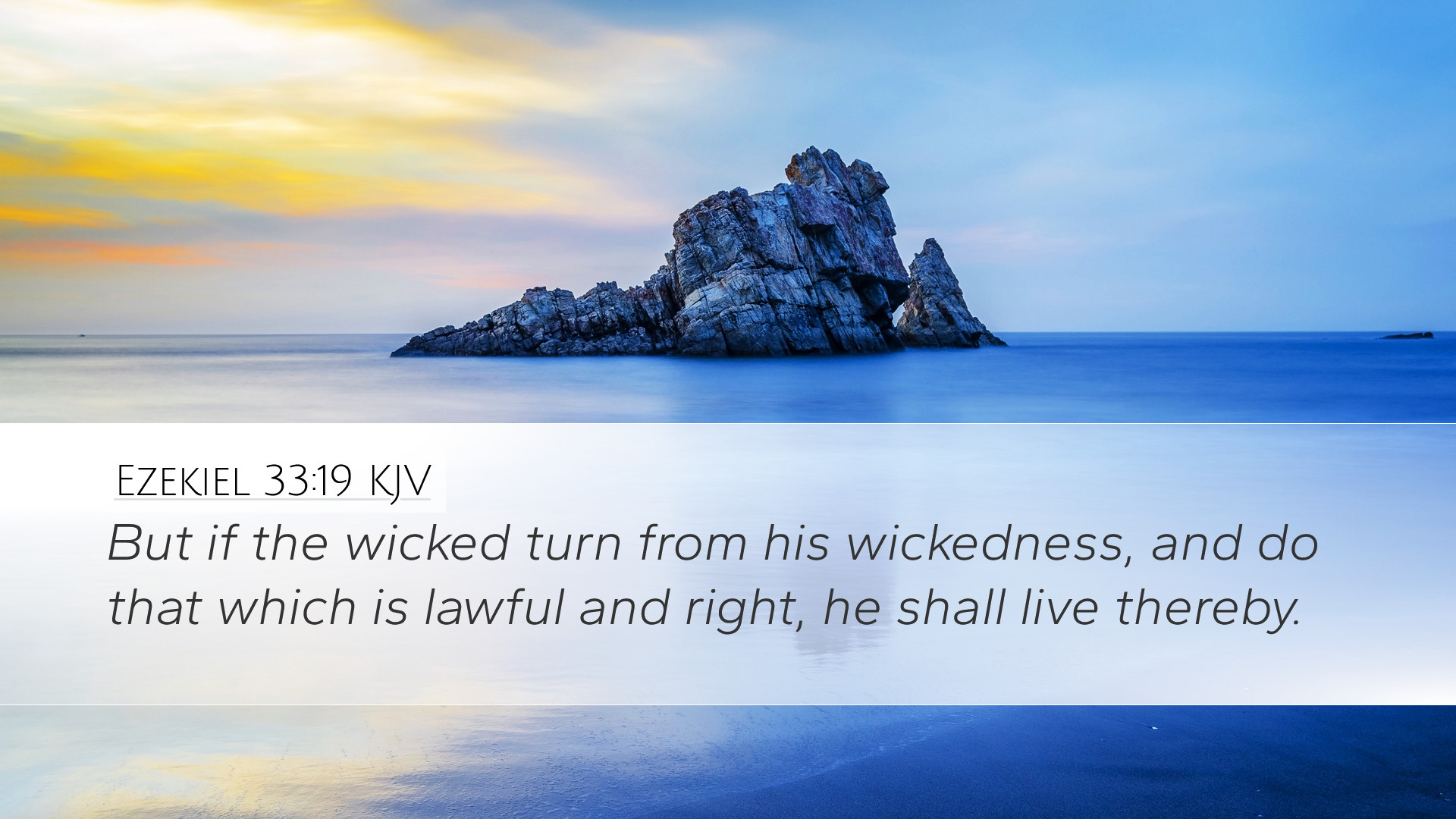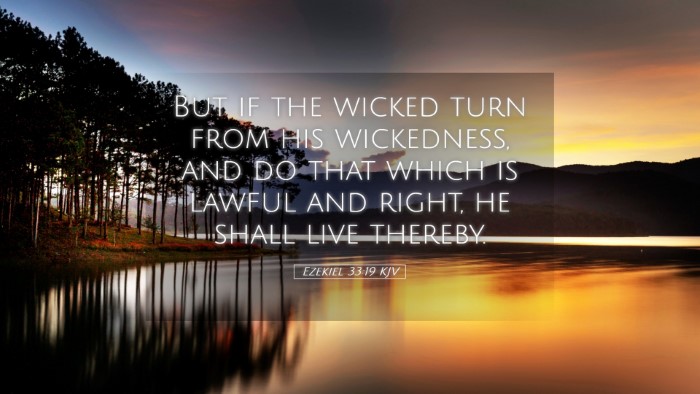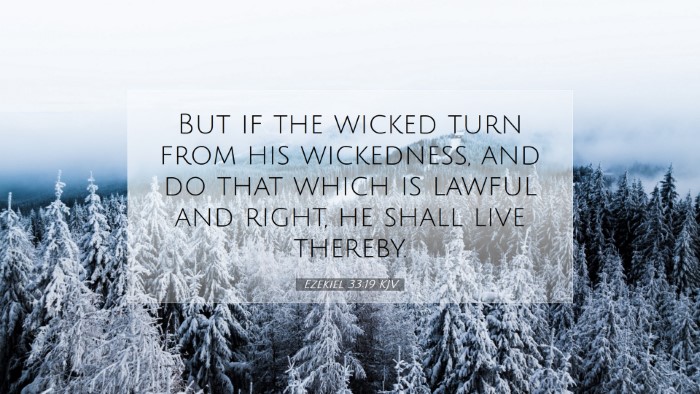Ezekiel 33:19 Commentary
Bible Verse: "But if the wicked turn from his wickedness, and do that which is lawful and right, he shall live thereby."
Introduction
Ezekiel 33:19 serves as a profound reminder of God's mercy and justice, encapsulating the essential themes of repentance, righteousness, and the potential for life through obedience to God's commands. This commentary draws insights from respected public domain commentaries, including those by Matthew Henry, Albert Barnes, and Adam Clarke, to elucidate the theological foundation and practical implications of this verse.
The Context of Ezekiel 33
The book of Ezekiel addresses the Israelites during their exile in Babylon, presenting prophetic messages of warning, judgment, and hope. Chapter 33 marks a pivotal turn where God raises the prophet as a watchman, emphasizing the responsibilities of individuals to heed divine warnings and the opportunities for redemption through repentance.
Key Themes in Ezekiel 33:19
- Wickedness and Repentance: The verse highlights the condition and consequence of wickedness, signifying both a lifestyle and a state of being that is in direct opposition to God's will (Matthew Henry).
- Divine Justice and Mercy: The balance between justice and mercy is intrinsic, as God invites the wicked to turn from their sinful ways, illustrating His desire for redemption over punishment (Albert Barnes).
- Righteousness: The call to do that which is lawful and right underscores the moral imperative upon all individuals, reflecting God's standards for ethical living (Adam Clarke).
- The Promise of Life: There is a clear promise of life for those who turn back and follow God's commandments, presenting the transformative power of repentance and obedience (Matthew Henry).
Exegesis of the Verse
The structure of this verse reveals a conditional statement: if there is a turning away from wickedness, then life is granted as a response from God. This condition emphasizes individual responsibility and the potential for redemption:
- "If the wicked turn from his wickedness": The term 'wicked' denotes those who are morally corrupt, yet the opportunity for turning back signifies God's invitation to redemption.
- "Do that which is lawful and right": This directive suggests that righteousness is more than mere avoidance of sin; it encompasses active engagement in God's commandments and ethical behavior.
- "He shall live thereby": The assurance of life upon compliance with God's expectations illustrates a central tenet of biblical theology—the promise of life that correlates with obedience to divine laws.
Theological Insights
Theologically, Ezekiel 33:19 opens avenues for discussing the nature of God as just and merciful:
- God as a Watchman: The role of the prophet as a watchman (Ezekiel 33:7) underscores the responsibility of proclaiming God's truth and warning against complacency in sin.
- God's Desire for Repentance: The verse exemplifies the heart of God that longs for sinners to return rather than perish, as echoed in other scriptural moments (e.g., 2 Peter 3:9).
- Salvation and Free Will: The potential for turning away from wickedness speaks to the free will granted to humanity, reflecting a relational aspect of salvation wherein individuals must act to accept God's grace.
Practical Applications
For pastors, students, and theologians, the lessons from this verse can guide practical applications in contemporary ministry:
- Calling for Repentance: In preaching, emphasizing the importance of repentance is vital, framing it as a positive opportunity for restoration rather than merely a condemnation of sin.
- Emphasizing Righteous Action: Encourage congregations and students to pursue what is lawful and right in their everyday lives, fostering a culture of ethical living rooted in scriptural principles.
- Hope for the Broken: This text serves as a reminder that no one is beyond the reach of God's mercy, prompting outreach efforts aimed at those deemed 'wicked' by societal standards.
Conclusion
Ezekiel 33:19 encapsulates a profound truth about the nature of God—His willingness to forgive and restore, coupled with the human responsibility to choose righteousness. As we examine this passage through the insights provided by esteemed commentaries, we gain a deeper understanding of its implications both in theological discourse and practical ministry. It is a call to action for the church and the individual, inviting believers into a transformative relationship with the Creator who desires all to live.


